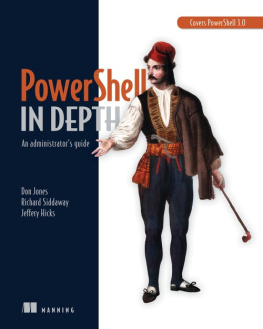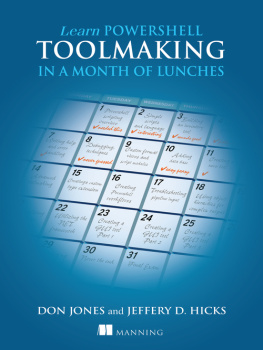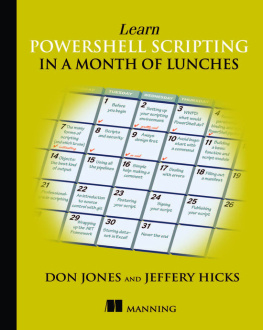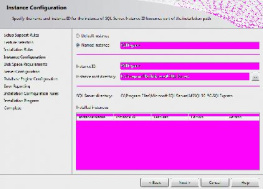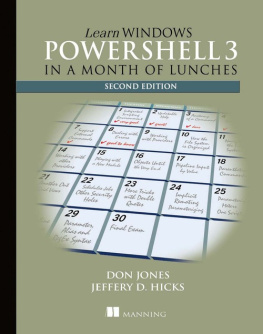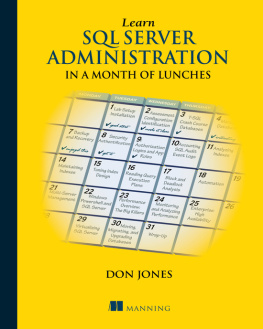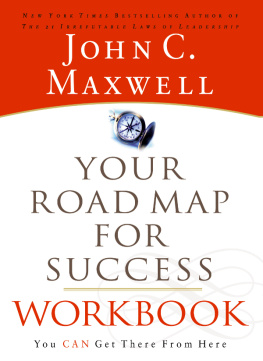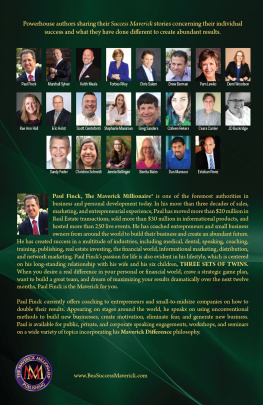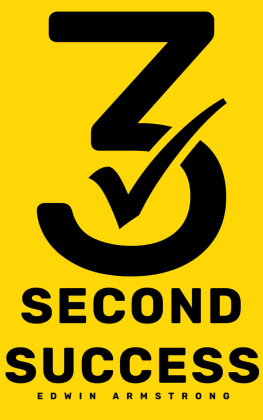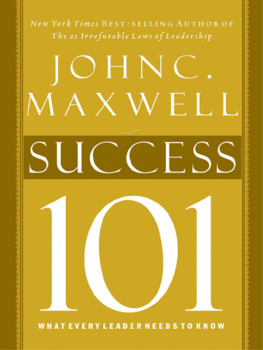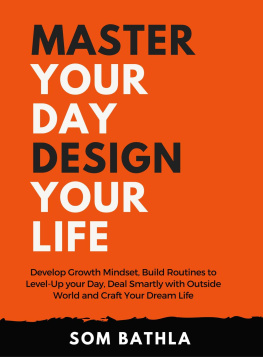This is a Leanpub book. Leanpub empowers authors and publishers with the Lean Publishing process. Lean Publishing is the act of publishing an in-progress ebook using lightweight tools and many iterations to get reader feedback, pivot until you have the right book and build traction once you do.
For Jason, who made me write this.
Introduction
This book started as a blog post in October 2017 on my site, DonJones.com. The post was entitled, Become the Master, or Go Away, and it generated what was, for me, a surprising amount of attention and positive feedback. I stand by the original post to this day, but quickly realized that a more prescriptive work could also be beneficial.
First, let me explain the concept of Master as it exists in this book, and explain why Masters are necessary.
For thousands of years, human society has recognized that the contributions of individual human beings are important and that preserving and evolving their skills and knowledge is also important. You see signs of this recognition in our current world, such as the US patent system (as well as similar patent systems worldwide). The word patent is centuries old. It appeared in medieval times in phrases like letters patent, essentially referring to any document issued by the government that confers a right or privilege. In our modern system, a patent basically confers a monopoly on the manufacture and sale of a device. So why would the government offer monopolies? I mean, arent monopolies generally to be avoided?
The answer is simple: fear. Fear that someone would produce an amazing invention and then die, leaving society unable to reproduce the invention. So a short-term monopoly was a lure for inventors to be completely candid about their invention, ensuring that society could benefit from it long into the future. You see, in order to get a patent, you have to describe exactly how it works (and you used to have to provide a working model, although not any longer). I realize that patent systems are deeply abused today, but their original intent was to protect society, not necessarily to protect the inventor.
Prior to the invention of modern patents, this same fear, this same desire to protect society, manifested itself in another way: apprenticeships. Masters in a craftblacksmiths, for example, or carpentersworked a lifetime to hone and perfect their trade. These craftsmen performed an invaluable service for society, which could not function without the existence of these trades. In order to preserve their livelihood, most craftsmen jealously guarded their trade secrets, their techniques, and so on. But these craftsmen were also human and subject to that ultimate human frailtydeath, which resulted in the loss of that craftsmans trade secrets. And so society invented the apprentice. Apprentices paid a fee to join a Masters trade, and worked alongside that Master for years, learning the Masters craft and trade secrets. Eventually, an apprentice would become a journeyman, helping the Master increase the output of his shop, earn more business, and settle into a semi-retirement. And eventually, many journeymen would either take over the shop or leave town and set up their own shop in some other village, ultimately becoming a Master in their own right.
The important bit here is that society crafted a system that ensured the continuation and continual improvement of the trade. Yes, Masters benefitted personally from the system, just as todays patent holders do, but the purpose of the system was to protect the trade. Masters eventually ganged up to form guilds, which represented the interests of the trade and helped to ensure apprentices were shepherded by an accomplished Master.
So what does this mean to you?
Well, in the aforementioned blog post, I tried to make a case that we have all, at some point, been an apprentice. Most of us are at apprentice stage in some topic or another for most of our lives. Many of us have had the benefit of learning, at least briefly, from a Master in our respective trade. Too few people, however, go on to become a Master themselves. You see, the point of a Master is not to know it all. The point of a Master is to teach. To share. To pass on. When you take a class, you are paying an apprenticeship fee of sorts to briefly apprentice under a Master - the teacher of the class. But too many people let it stop there. They assume that the Master got paid, and their obligation as a student is fulfilled. But remember that the apprenticeship system, like the patent system that followed, was always meant to protect society. To truly be a successful apprentice, we must pass along what we have learned. We must become the Master, in at least a small way, so that we can continue sharing the information of our trades.
Theres an implicit balance in this arrangement, though, that I feel needs to be made explicit: By accepting an apprentice, a Master agrees to give up some of the time normally spent in their trade. Time is money, which means the Master is agreeing to give up moneywhich is why, traditionally, formal apprentices paid a fee to join their Masters shop. For you, however, the arrangement between Master and apprentice is going to be different, and well come to thatbecause maintaining that balance between time and money is still important in our modern world.
Today, higher educationuniversitieshave largely replaced the apprenticeship systems of old for most trades. That is a shame because a book can never capture the nuances and lore locked up in the brain of an actual practitioner. In reality, everyone who has ever been to college knows that a degree is barely the starting point; you still spend years learning your trade on the job, working alongside other journeymen and Masters. Many trades explicitly acknowledge this, requiring graduates from law school, medical school, and so on to spend time as internsapprentices in the modern world.
Too often, we equate the term Master with expert, and we feel that, until we reach that ineffable expert state, we are not worthy to pass along what we know. This is bullshit. In our modern, always-connected world, every bit of experiencenot knowledge, but true experienceis valuable and worthy of being passed along. Indeed, I feel we owe it to those who taught us to turn around and re-teach it, whatever it is, to others. As we do, we add our own experiences, our own color, if you will. We evolve our trade, and we help ensure its survival. To not become the Master is to be a failure as an apprentice. To not become a teacher is to be selfish and to be unworthy of being taught.
Theres an important point that I want to re-state: In medieval society, the position of Master was typically protected by a guild of some kind. You needed to earn your Mastery, and before you did so, you were relegated to a subservient role and not encouragedor allowedto pass what knowledge you had gained on to others. Many guilds collectively protected trade secrets, only permitting Masters to pass them on to official apprentices. In modern society, this same privilege to teach remains with us. University professors teach. Teachers teach. So-called gurus teach. Anyone not in such a privileged position simply learns. Our educational world is binary: You are either a teacher or a student. I propose that this division is ridiculous. All college professors could stand to learn a thing or two. No guru is expert in


